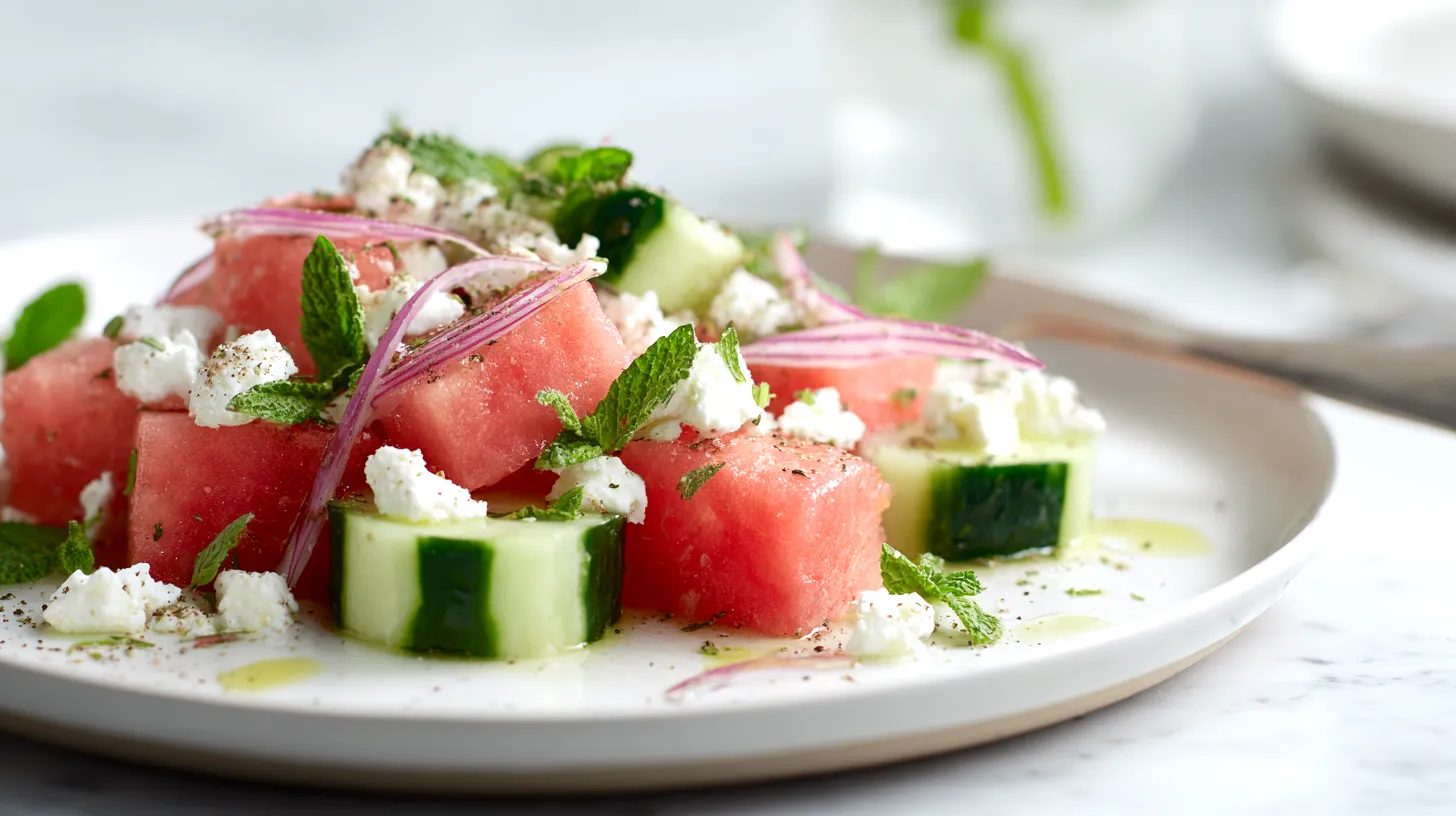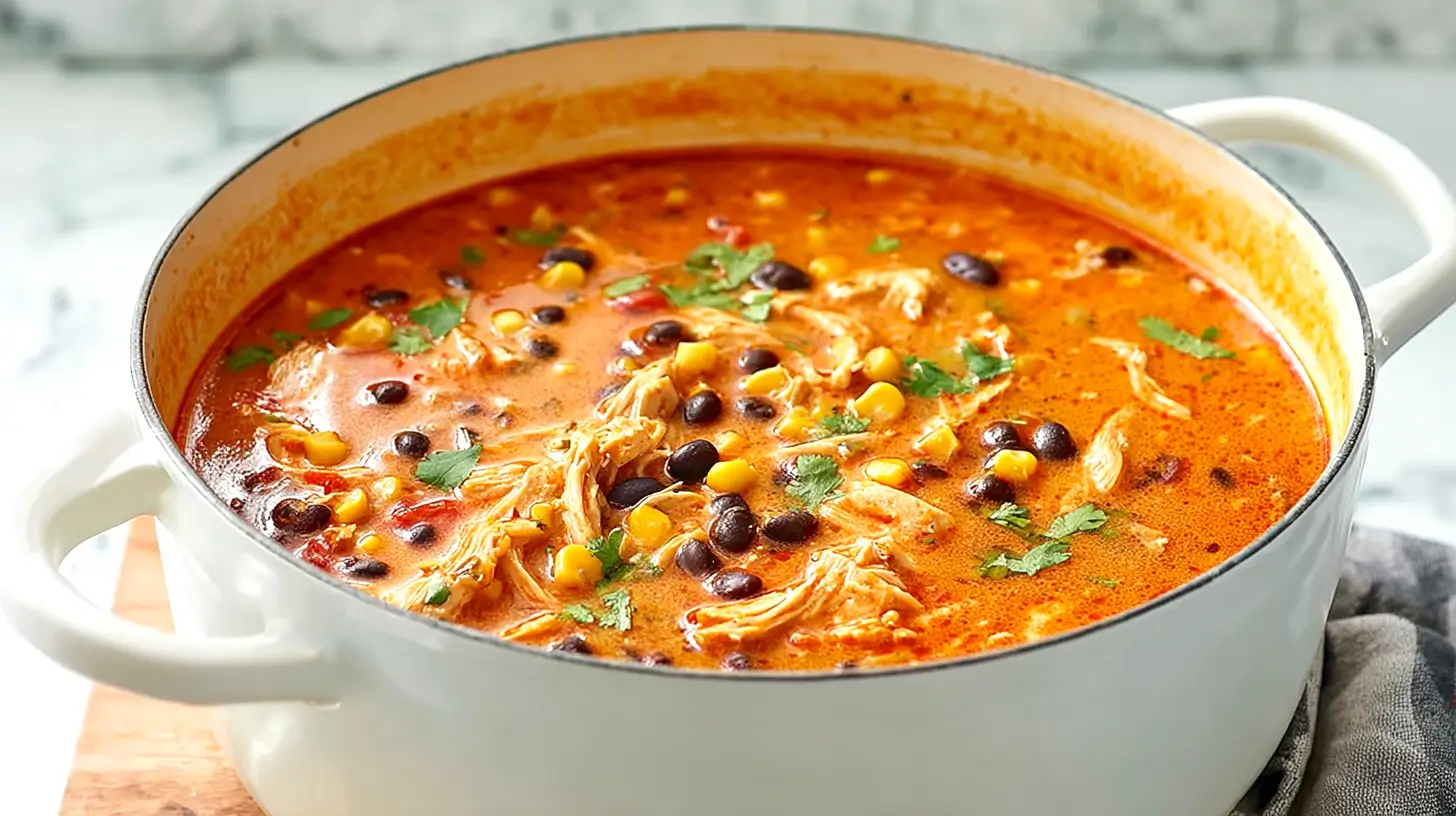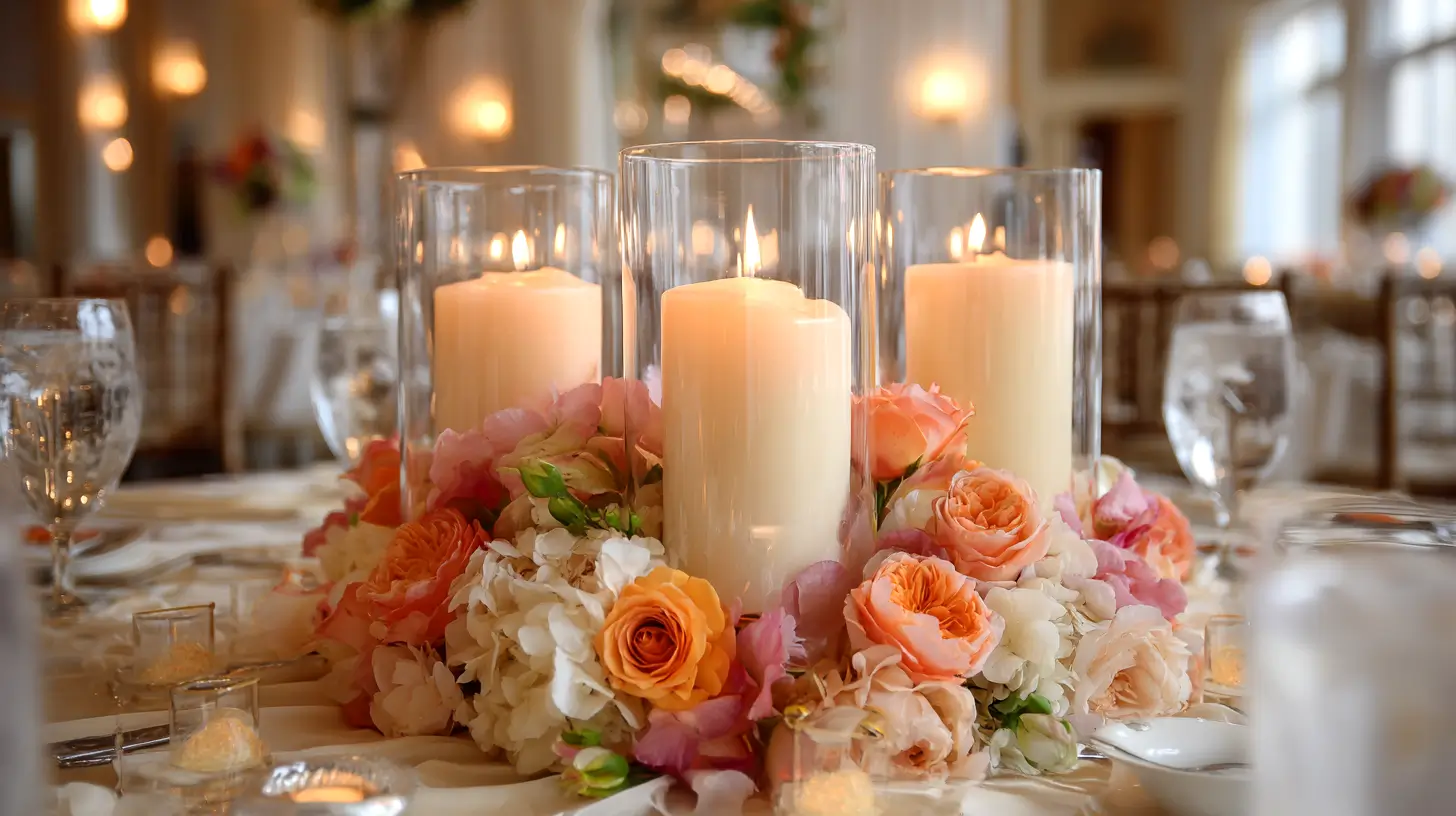Learning how to boil eggs might seem too simple to need a full post. But trust me, it’s one of those things that people either totally overthink or rush through. I’m writing this today not just to show you a method that works every time, but also to help you save a little money while doing it.
Eggs are one of the cheapest and most filling foods around. When you boil them the right way, they last longer, travel well, and make snacks or meals easier. It’s one of those frugal habits that makes everyday life run smoother. Plus, when you’re feeding a family or planning lunches, boiled eggs can be a small way to make a big difference.
I’ll go over the basics, but I’ll also share little tips that make a big impact. Things like how to peel them easily, how to keep them from cracking, and how to avoid that weird gray ring around the yolk. We’ll even look at how to store them, how long they last, and a few ways to use them up if you end up boiling a bunch at once.
If your goal is to waste less and spend less, this post is for you. Whether you’re meal prepping, packing school lunches, or just trying to stay on budget, boiled eggs can help. And once you’ve got this simple skill locked in, you’ll always have a fast, affordable option on hand.
Let’s go step by step so you feel confident, save a little money, and maybe even enjoy boiling eggs more than you thought you would.
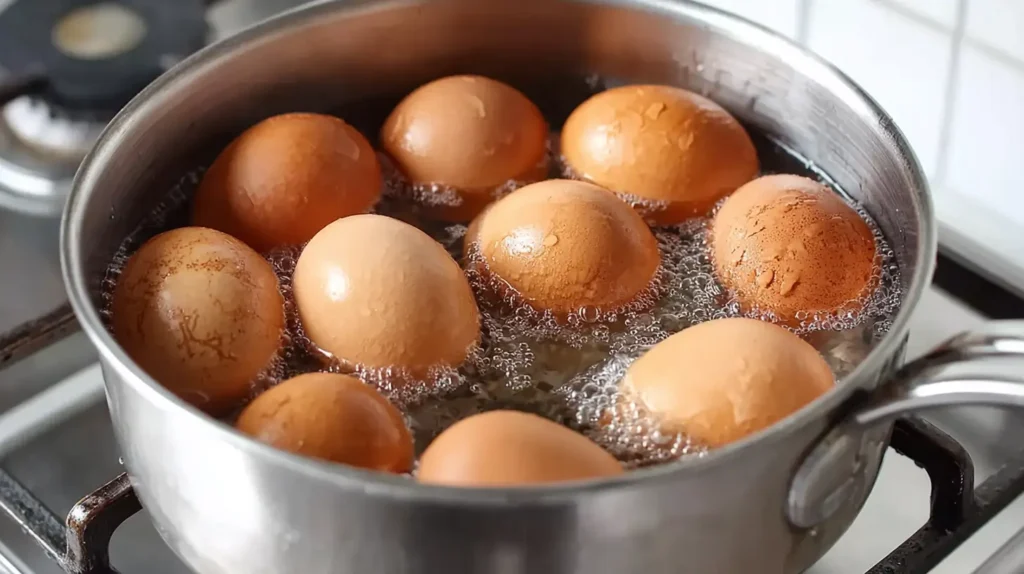
This site includes affiliate links; please take a look at the disclosure for more details.
The Basics of How to Boil Eggs Right Every Time
There are so many ways people boil eggs. But let’s keep it simple. You don’t need fancy gadgets or tricks. Just water, eggs, and a pot. That’s all.
Start by grabbing your eggs. You can use ones that are a few days old. In fact, slightly older eggs peel better.
Here’s the basic method I use:
- Put eggs in a single layer in a saucepan.
- Fill the pan with enough water to cover them by an inch.
- Set the pan on the stove and turn the heat to high.
- When the water reaches a rolling boil, turn off the heat.
- Cover the pan with a lid.
- Let the eggs sit for 9 to 12 minutes, depending on the size and how firm you like the yolks.
- When the time is up, move the eggs to a bowl of ice water.
- Let them cool for about 10 minutes.
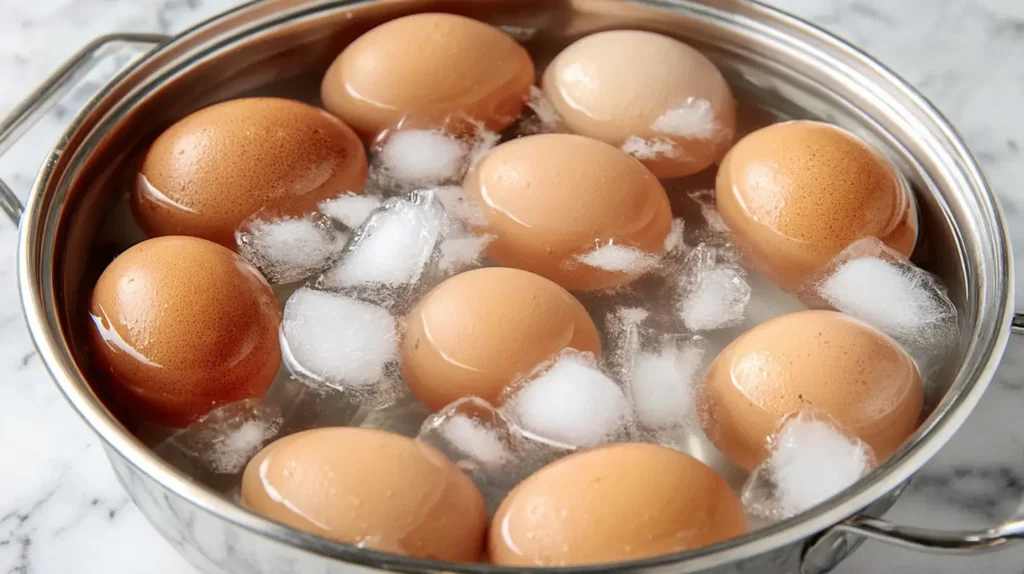
That’s it. You just learned how to boil eggs with no extra fluff. This method gives you firm whites and yolks that don’t have that weird green-gray edge.
If you like a slightly soft center, go for 9 minutes. For fully hard-boiled, aim for 11 or 12.
Using this method saves money because:
- You won’t waste eggs by overcooking them.
- You don’t need expensive kitchen tools.
- You avoid buying pre-boiled eggs at the store.
The key is to let the eggs sit in the hot water, not boil the whole time. This uses less energy and helps prevent cracked shells.
Now that you’ve got the basic method, let’s talk about some common problems people run into and how to fix them.
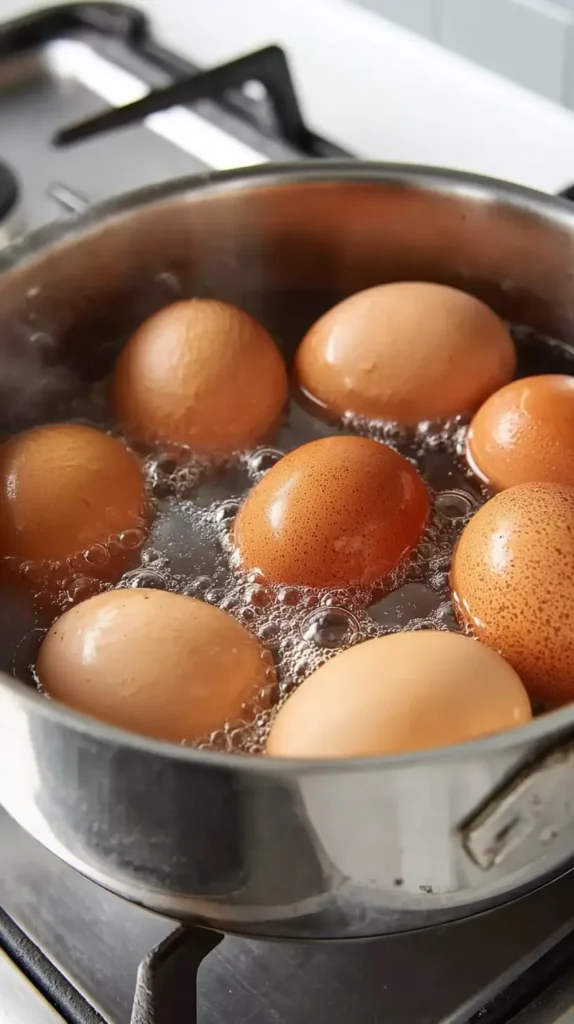
What to Do When Your Eggs Crack or Don’t Peel Well
Boiling eggs sounds easy. But if your shells crack or they won’t peel, it gets frustrating fast. Luckily, a few quick tips can fix all that.
First, here’s why eggs crack in boiling water:
- You used eggs straight from the fridge.
- The water boiled too hard before you turned it off.
- The eggs were packed too tightly in the pot.
Try these easy fixes:
- Let your eggs sit on the counter for 10–15 minutes before boiling.
- Use medium heat and pull the pot off as soon as it starts boiling.
- Make sure there’s enough room in the pot for water to circulate.
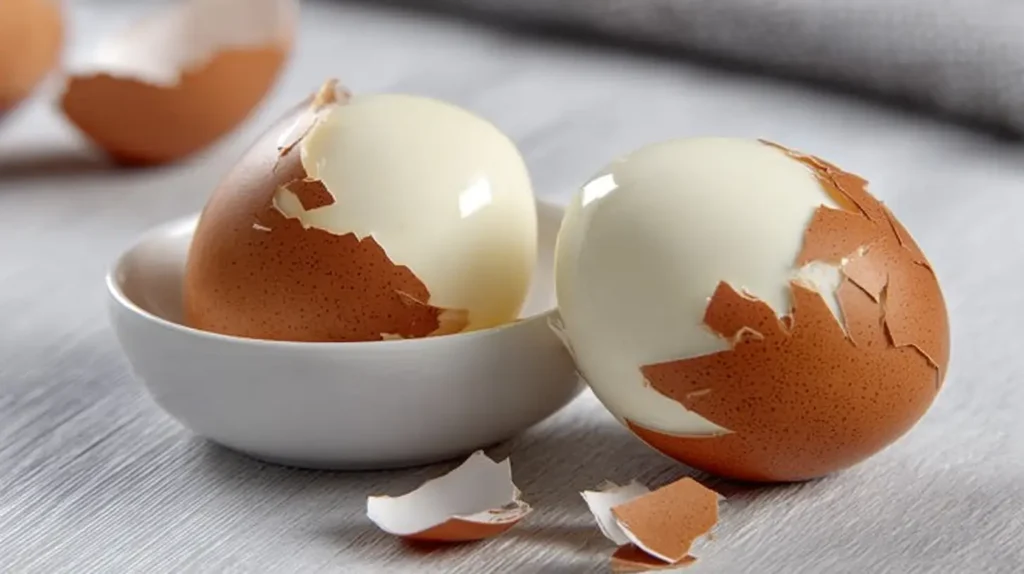
Now about peeling. Some eggs peel like a dream. Others feel like a chore. Here’s what helps:
- Use eggs that are at least 5 days old. Fresh eggs stick to their shells.
- After boiling, cool eggs in ice water for 10 minutes.
- Gently tap the eggs all over, then roll them between your hands to loosen the shell.
You can also peel them under running water or in a bowl of water. That helps lift the shell away from the egg.
Here’s something I started doing and it really works:
- After the ice bath, crack all the eggs just slightly.
- Let them sit in the water for another five minutes.
- The water slips under the shell and makes them easier to peel.
This may sound like a lot of steps, but it’s really fast once you try it. No more shredded eggs or sticky shells.
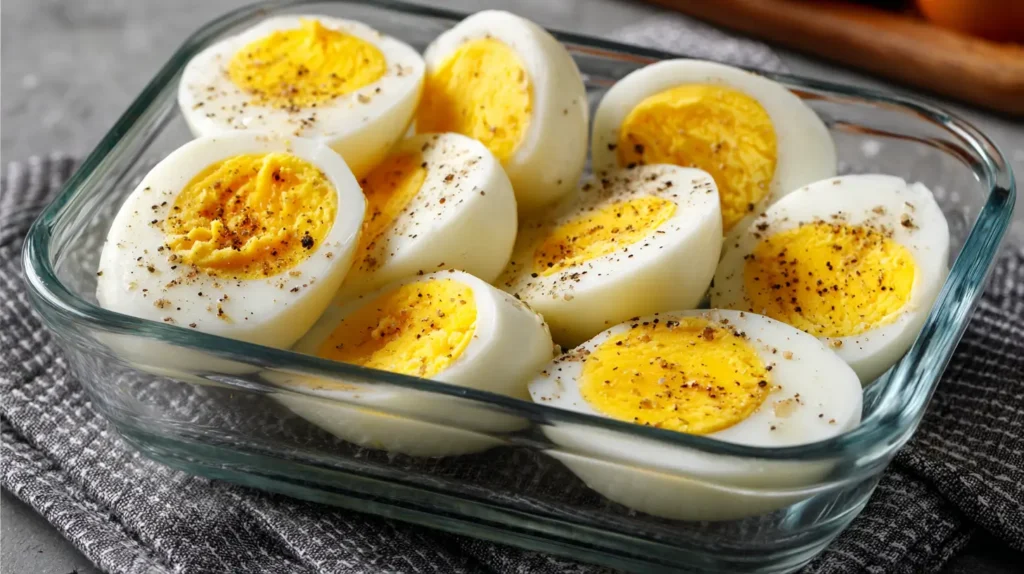
How to Store Boiled Eggs (So They Last and Taste Good)
Once you’ve mastered how to boil eggs, the next step is keeping them fresh. The good news is, boiled eggs store really well.
You can keep them in the shell or peel them in advance. Each way has its own pros and cons.
If you keep them in the shell:
- They’ll last up to a full week in the fridge.
- They stay a little fresher.
- Write the date on the shell with a pencil if you’re worried about forgetting.
If you peel them ahead of time:
- They’ll last about 3 to 5 days in the fridge.
- Store them in an airtight container.
- Add a damp paper towel if you want to keep them from drying out.
Don’t store peeled eggs loose in the fridge. They’ll pick up odors from other foods.
And skip freezing them. The texture turns weird and rubbery. Boiled eggs are best fresh from the fridge.
You can also prep a dozen on Sunday and use them through the week. This makes meal planning easier and helps you avoid fast food or pricey snacks.
Use your boiled eggs for:
- Breakfasts (slice onto toast)
- Lunches (toss into salads)
- Snacks (just sprinkle with salt and pepper)
- Quick dinners (add to tuna or pasta salad)
Having them ready saves time and keeps you from grabbing more expensive food on the go.

Smart Ways to Use Up Extra Boiled Eggs
Let’s say you boiled a whole dozen and now you’re wondering what to do with them all. No worries—there are lots of fun, simple ways to use them up.
Boiled eggs don’t need to be boring. And if you’re trying to stick to a grocery budget, every egg counts.
Here are a few ways I like to use them:
- Chop into tuna salad: Adds protein and flavor
- Make egg salad: Mash with mayo, mustard, salt, and pepper
- Top a salad: Slice and toss on any green salad for an easy lunch
- Avocado toast: Add slices of egg on top
- Breakfast sandwich: Layer egg with cheese and toast
- Add to ramen: Instant noodles feel a little fancier this way
If your kids like deviled eggs, boil a few extras and whip those up. You can even try adding:
- A little hot sauce
- Chopped pickles
- Everything bagel seasoning
Boiled eggs also work great in a lunchbox. Add some crackers and fruit, and you’ve got a balanced, filling meal for under a dollar.
They’re also great chopped into baked potatoes, added to wraps, or tossed with leftover rice for a quick bowl.
Don’t throw them out just because they’ve been in the fridge for a few days. As long as they smell and look okay, they’re still good to go.
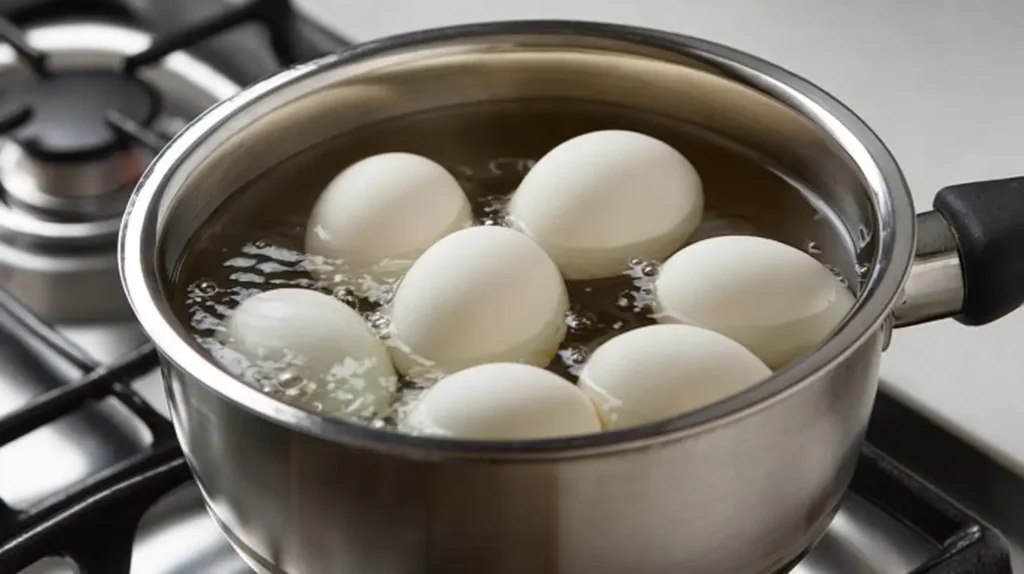
How to Boil Eggs in Bulk and Save Even More
If you’re trying to save time during the week, boil eggs in bulk. You can do a whole dozen or more in one batch. This cuts down on cooking time and gives you snacks and meal helpers for days.
The method is the same, but with a few small tweaks:
- Use a bigger pot so the eggs don’t touch too much.
- Make sure water covers them by at least an inch.
- Let the eggs come to a gentle boil, then turn off the heat.
- Keep the lid on and let them sit for 12 minutes.
Then use an ice bath, just like usual. You don’t need to peel them all right away. In fact, it’s better to wait and peel as needed.
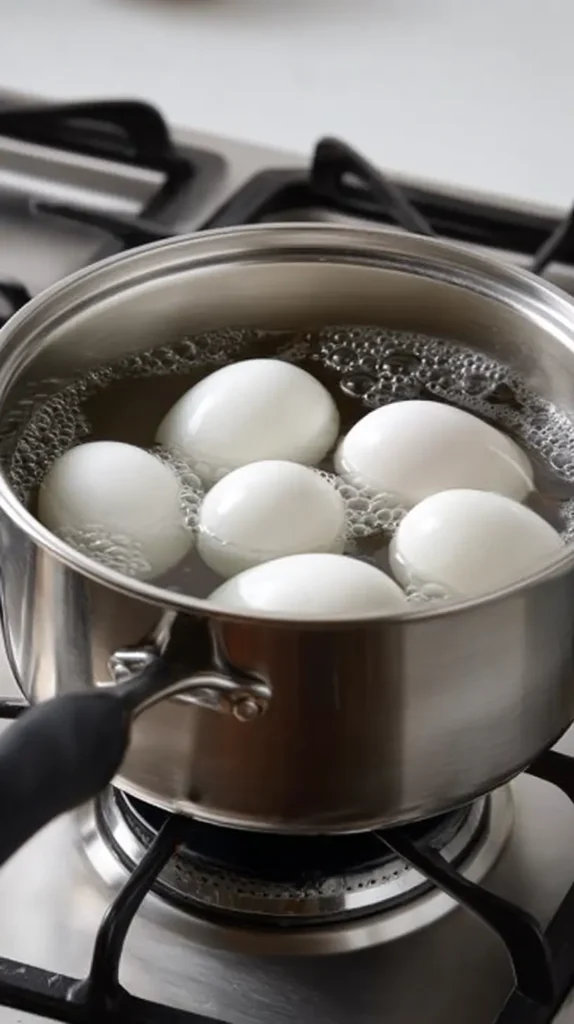
Here are some ways this saves money:
- You won’t be tempted to eat out as often.
- Prepping snacks at home costs way less.
- You cut down on food waste.
Boiled eggs can fill in where meat might go. They’re full of protein and work in all kinds of meals.
Want to save even more? Buy eggs in bulk when they’re on sale and boil them in batches.
Just remember:
- Store unpeeled eggs for up to a week.
- Store peeled eggs for 3 to 5 days.
- Use containers that seal tight so they don’t dry out.
This one habit can really stretch your grocery dollars.
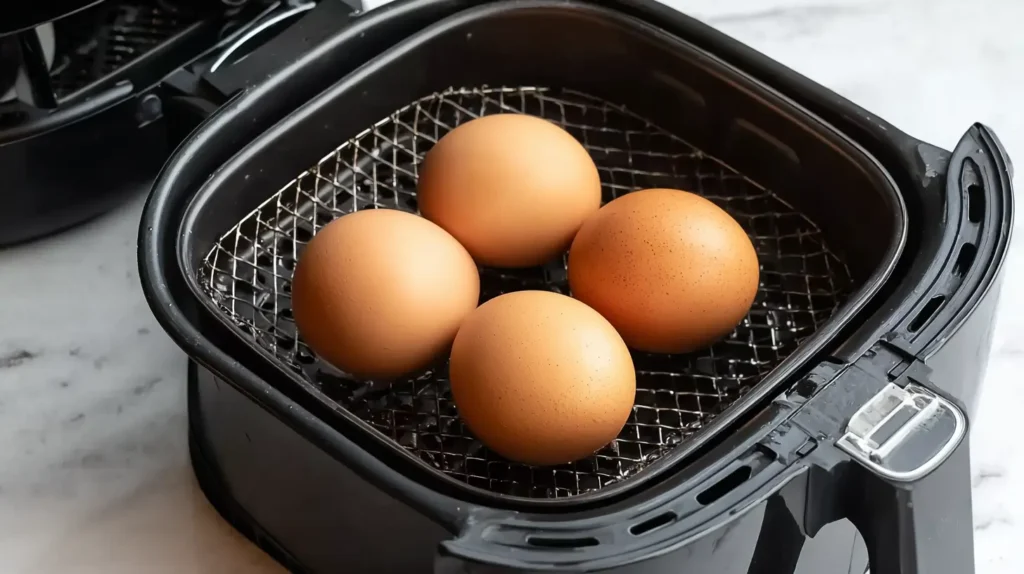
Another Easy Way: How to Boil Eggs in the Air Fryer
If you’ve got an air fryer, you can make boiled eggs without any water at all. I know that sounds strange, but it actually works. It’s not boiling in the traditional sense, but you get the same result: cooked eggs with firm whites and creamy yolks. And it’s just as helpful if your goal is to save time, mess, and money.
Here’s how to do it:
- Preheat your air fryer to 270°F (or 275°F if yours doesn’t have that exact number).
- Place cold eggs straight from the fridge into the basket.
- Make sure they’re not stacked or touching too much.
- Cook for 15–17 minutes, depending on how done you like them.
- Remove the eggs with tongs (they’ll be hot).
- Place them right into an ice bath for 10 minutes.
That’s it. No pot, no stove, no boiling water to clean up. Just set the timer and walk away.
Here’s why I love this method:
- No watching for the water to boil
- No guessing on cook time
- Less cleanup overall
And here’s why it saves money:
- Uses less water
- Less energy than boiling a whole pot
- Great for small batches (no waste)
You still get perfect hard-boiled eggs with very little effort. Just remember, not all air fryers cook the same. If it’s your first time trying this, start with one or two eggs as a test.
Once you nail the timing, this becomes a great go-to method. Whether you’re meal prepping or just want a quick snack, learning how to boil eggs in the air fryer is another smart, frugal trick to keep in your kitchen toolkit.
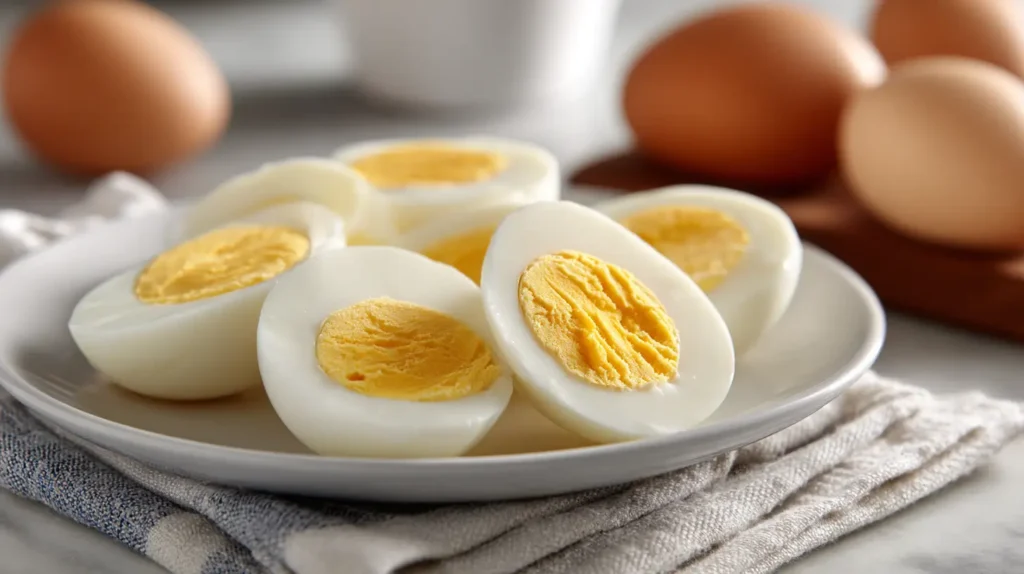
Final Thoughts
Boiling eggs might seem small, but it’s one of those habits that adds up over time. Learning how to boil eggs the right way means fewer wasted eggs, fewer meals eaten out, and more affordable protein at home.
Let’s review what we talked about:
- How to boil eggs step by step
- How to stop them from cracking
- Tricks for easy peeling
- Best storage methods
- Fun ways to use up extras
- How to boil eggs in bulk
If you’re on a budget, these little changes matter. Eggs are one of the cheapest proteins around. And knowing how to cook them properly keeps them from going to waste.
Try:
- Prepping a batch on Sunday
- Using eggs as a meal base
- Saving time during busy mornings
- Packing them for school or work
Even small savings, like skipping a store-bought snack, can make a big difference over time. Pinterest is full of cute meal ideas using boiled eggs too, if you ever want to get creative.
In the end, it’s not just about eggs. It’s about building smart, budget-friendly habits that support your goals. So next time you’re planning meals or packing lunch, remember how simple and helpful boiled eggs can be.
Now you know how to boil eggs, store them, and use them up without wasting a single one—or your money.

